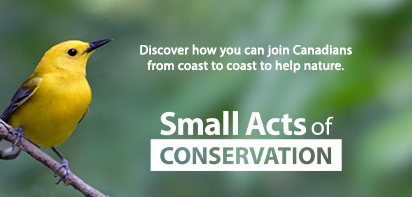Local conservation partnership aims to “meet the need for seed”
Tallgrass prairie habitat restoration in Rice Lake Plains to be accelerated through collaborative seed collection and production
Efforts to restore rare and globally significant tallgrass prairie habitat in Ontario’s Greenbelt will receive a much-needed boost, thanks to a new project by local conservation partners and supported by the Greenbelt Foundation.
Supported by a grant to the Nature Conservancy of Canada (NCC), the Rice Lake Plains Partnership Seed Co-op is a new initiative to bolster native seed production and collection efforts and offer opportunities for the community to get involved in conservation. Seed that is grown and collected will then be used in habitat restoration projects in the Oak Ridges Moraine Greenbelt area, helping to enhance biodiversity and climate resiliency.
Once covered with diverse tallgrass prairie and oak savannah habitats, the landscape of the Rice Lake Plains is now badly fragmented and overgrown with non-native species. Grassland birds and other rare species, including eastern hog-nosed snake, depend on this rare habitat to survive. The many stewards of the Rice Lake Plains, including private landowners, Alderville First Nation, conservation groups and government, have made great strides in caring for the land, and over the past 20 years, hundreds of hectares in this area of the Greenbelt have been restored to natural tallgrass prairie and oak savannah habitat.
But demand for local seed vastly outstrips supply: one of the most significant barriers to scaling up effective habitat restoration is the shortage of locally sourced native (tall grass) seed. The Co-Op will work to improve how partners track, create, manage and enhance local seed production sites and will build a sustainable seed use strategy that reflects the needs of the Indigenous community. New seed “orchards,” or production sites, will be created across the Rice Lake Plains and collectively will “meet the need for seed.”
Volunteers have been at the core of restoration successes in the area, and NCC invites the community to attend upcoming Conservation Volunteers events to kick off this exciting project this month:
-
Plugs for the Prairie: Help care for rare prairie habitat on the Rice Lake Plains
- October 19, 2024
- Location: Baltimore, Ontario
-
Salt Creek Seed Collection: Help collect native wildflower seeds to be used in future habitat restoration projects.
- October 20, 2024
- Location: Warkworth, Ontario
Learn more and register at natureconservancy.ca/en/where-we-work/ontario/events/
Ongoing restoration work in the Rice Lake Plains has been generously supported by the Government of Canada, through the federal Department of Environment and Climate Change Canada’s Habitat Stewardship Program for Species at Risk.
This project showcases how NCC is working with partners to accelerate the pace of conservation in Canada. Over the next few years, the organization will double its impact by mobilizing people and delivering permanent, large-scale conservation. In the face of rapid biodiversity loss and climate change, nature is our ally. There is no solution to either without nature conservation.
Quotes
“We need to restore natural ecosystems to help heal the planet, and we do this at the local level. This project will help speed up that process significantly, and we appreciate the support of the Greenbelt Foundation. NCC is proud to team up with committed volunteers and inspirational conservation partners to restore habitat faster and more effectively in Northumberland County.” – Mark Stabb, Program Director – Central Ontario East, Nature Conservancy of Canada
“This project represents the Greenbelt’s natural infrastructure in action. By restoring vital ecosystems like the tallgrass prairie, we’re not only preserving biodiversity but also boosting climate resiliency for future generations. The Rice Lake Plains Partnership exemplifies the collaborative, grassroots approach we need to protect and enhance the Greenbelt’s environmental health.” – Edward McDonnell, CEO, Greenbelt Foundation
Facts
-
Part of Ontario’s Greenbelt, the Rice Lakes Plains of Northumberland County are known for their tallgrass prairie and oak savannah habitats. These unique ecosystems thrive in the dry, sandy conditions found in the Oak Ridges Moraine. They are dominated by black and white oak and feature prairies and open woodland areas where native grasses like big bluestem, Indian grass and switchgrass and a diverse range of wildflowers grow.
-
In 2002, NCC set out to protect and restore the rare ecosystems of the Rice Lake Plains. To foster the long-term sustainability of this approximately 40,000-hectare area, NCC formed the Rice Lake Plains Partnership and has been collaborating with Alderville First Nation, the County of Northumberland, Ganaraska Region Conservation Authority, Lower Trent Region Conservation Authority, Northumberland Land Trust, Ontario Parks and other partners ever since. Members of the partnership will help form and guide the development of the Rice Lake Plains Partnership Seed Co-Op.
-
The Oak Ridges Moraine is the eastern extension of Ontario’s protected Greenbelt. The Greenbelt's natural areas provide essential climate resiliency for local communities in the Greater Golden Horseshoe — Canada's most rapidly urbanizing region. Greenbelt natural features, like forests, wetlands and healthy soils, help prevent flooding, protect our fresh water and offset the urban heat-island effect, helping to keep the air feeling cool during heat waves.
-
Many of the Greenbelt’s natural heritage features perform an under-recognized function known as natural infrastructure. Healthy natural assets — forests, wetlands, prairies and rivers — provide local governments with core infrastructure services such as stormwater management and flood control, regulating water quality and quantity, and managing rising temperatures.
-
In advance of the United Nations’ biodiversity and climate conferences this fall, the Nature Conservancy of Canada and the International Land Conservation Network are hosting the world’s conservation leaders in Mont-Sainte-Anne, Quebec, from October 16 to 18, at the 2024 Global Congress of the International Land Conservation Network, presented by RBC. Under the theme “Resilient landscapes for a resilient world,” civic and private land conservation experts from six continents will share resources and chart a path to achieve the global target of conserving 30 per cent of the planet’s lands and waters by 2030. This target is what nature needs if we’re to protect biodiversity on Earth and safeguard communities from the impacts of climate change.
About
The Nature Conservancy of Canada (NCC) is the country’s unifying force for nature. NCC seeks solutions to the twin crises of rapid biodiversity loss and climate change through large-scale, permanent land conservation. As a trusted partner, NCC works with people, communities and government to protect and care for our country’s most important natural areas. Since 1962, NCC has brought Canadians together to conserve and restore more than 15 million hectares. To learn more, visit natureconservancy.ca.
The Greenbelt Foundation is a charitable organization solely dedicated to ensuring the Greenbelt remains permanent, protected and prosperous. We make the right investments in its interconnected natural, agricultural and economic systems to ensure a working, 5 thriving Greenbelt for all. Ontario’s Greenbelt is one of the world’s largest with over two million acres of farmland, forests, wetlands and rivers working together to provide clean air, fresh water and a reliable local food source. greenbelt.ca
Habitat Stewardship Program
The Government of Canada established the Habitat Stewardship Program for Species at Risk in 2000 as part of Canada’s national strategy for the protection of species at risk. Environment and Climate Change Canada administers Habitat Stewardship Program funds for terrestrial stewardship projects that contribute directly to the recovery objectives and population goals of species at risk listed on Schedule 1 of the Species at Risk Act and that prevent others from becoming a conservation concern.
Learn More
Follow us on on X (formerly Twitter): x.com/NCC_CNC | x.com/NCC_CNCMedia
Find us on Facebook
- 30 -




